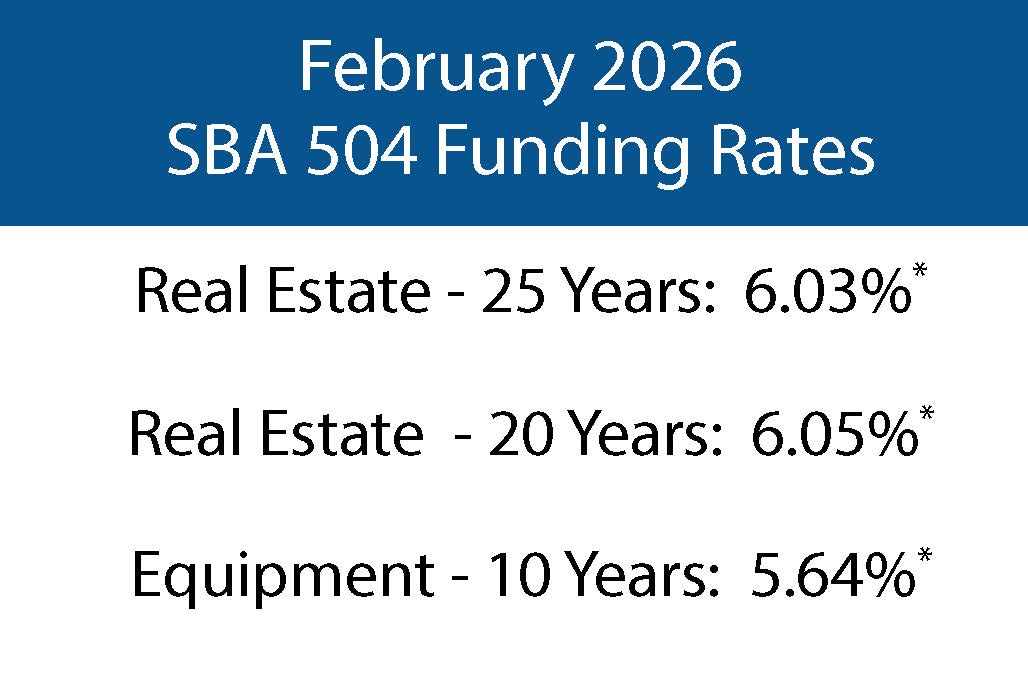When it comes to financing commercial real estate for your business, the Small Business Administration (SBA) offers two primary loan programs: the 504 Loan and the 7(a) Loan.
Each has distinct advantages and limitations that could significantly impact your business's financial health.
At BDC Capital/New England Certified, we've helped thousands of New England businesses navigate these options since 1953.
SBA 504 Loans: Structured for Long-Term Real Estate Investment
SBA 504 loans are specifically designed for purchasing or improving fixed assets, particularly commercial real estate.
Key Features:
- Loan Structure: Typically involves three parties - a bank (50%), CDC (40%), and borrower (10%)
- Loan Amount: Up to $5 million for standard businesses, higher for manufacturers and renewable energy projects
- Interest Rates: Fixed-rate financing for 10, 20, or 25 years
- Down Payment: Generally 10% (can be higher for startups or special-use properties)
- Property Occupancy: At least 51% for existing buildings; 60% for new construction
- Primary Uses: Real estate purchase, construction, renovation, or equipment acquisition
Advantages:
- Lower, fixed interest rates over the life of the loan
- Smaller down payment requirements than conventional loans
- Longer terms available (up to 25 years)
- Lower monthly payments, improving cash flow
Limitations:
- Cannot be used for working capital, inventory, or debt refinancing (except under specific circumstances)
- More paperwork and documentation than some alternatives
SBA 7(a) Loans: Versatile Financing Solutions
The 7(a) program is SBA's most versatile loan option, appropriate for various business needs including commercial real estate. When a loan is eligible for 504 financing, it is usually a better alternative.
Key Features:
- Loan Structure: A direct loan between lender and borrower, guaranteed by SBA
- Loan Amount: Up to $5 million
- Interest Rates: Can be fixed or variable
- Down Payment: Typically 10-20%, depending on lender requirements
- Property Occupancy: At least 51% owner-occupied
- Primary Uses: Real estate, working capital, equipment, business acquisition, and more
Advantages:
- Flexibility to finance multiple business needs in one loan
- Fast approval process, especially with Preferred Lenders
- Can include working capital and other expenses with property purchase
Limitations:
- Potentially higher interest rates than 504 loans
- Variable rates may create uncertainty for long-term planning
- May require more collateral beyond the financed property
- Generally higher fees than 504 loans
Choosing Between 504 and 7(a) for Commercial Real Estate
Consider these factors when deciding which program best suits your needs:
Choose SBA 504 When:
- You need the lowest possible fixed interest rate
- You can wait longer for approval and closing
- Your project is primarily real estate or equipment focused
- You can demonstrate job creation or meet public policy goals
- You want to minimize your down payment
- You're planning a long-term investment in the property
Choose SBA 7(a) When:
- You want to bundle working capital with your property purchase
- You have a complicated financing need that doesn't fit neatly into the 504 program
- You need flexibility in the use of funds
How BDC Capital/New England Certified Can Help
As New England's oldest business development corporation, BDC Capital offers specialized expertise in navigating SBA financing options. Our team will:
- Analyze your specific business needs and objectives
- Guide you through eligibility requirements for both programs
- Help structure the most advantageous financing package
- Streamline documentation and approval processes
- Work with our network of 39 financial institution partners to secure optimal terms
With over $2.3 billion invested in more than 8,300 New England businesses, our experience encompasses the full spectrum of commercial financing solutions, including both SBA 504 and 7(a) loans.
Recent Program Updates
The SBA has made several important changes to these programs that potential borrowers should be aware of:
- Environmental review processes have been streamlined
- New foreign ownership eligibility guidelines have been implemented
- Refinancing rules have been expanded for the 504 program
- Staff reductions at SBA may affect processing times for certain applications
Contact BDC Capita/New England Certified Today
Whether you're looking to purchase an existing building, construct a new facility, or renovate your current space, BDC Capital can help you determine whether the SBA 504 or 7(a) loan program better aligns with your business objectives.
Contact us at 781-928-1100 to discuss your commercial real estate financing needs.
FAQs on SBA 504 vs. 7A Loans
What minimum credit score is required for SBA 504 and 7(a) loans?
Most lenders prefer scores of 650+ for both programs. 504 lenders might be more flexible if other application aspects are strong, while 7(a) lenders often have more discretion in their requirements. Better scores generally secure more favorable terms.
How long does the approval process take for each loan type?
SBA 504 loans typically take 30-45 days due to the dual approval process. SBA 7(a) loans are generally 30-45 days, especially through Preferred Lenders. Processing times vary based on application completeness and complexity.
Can I use an SBA loan to purchase a building that will be partially leased to other businesses?
Yes. For 504 loans, you must occupy at least 51% of an existing building or 60% of new construction. For 7(a) loans, you must occupy at least 51% of the property. You can lease the remaining space to generate additional revenue.
Are there prepayment penalties for SBA 504 and 7(a) loans?
SBA 7(a) loans have no prepayment penalty for terms of 15 years or less, but have declining penalties in the first three years for longer terms. SBA 504 loans typically have prepayment penalties during the first half of the loan term, decreasing over time.
What businesses are ineligible for SBA financing?
Ineligible businesses include real estate investment firms, lending businesses, gambling operations, businesses primarily promoting religion, and those with improperly documented non-U.S. citizen owners. Recent foreign ownership rule changes have modified some eligibility criteria.





